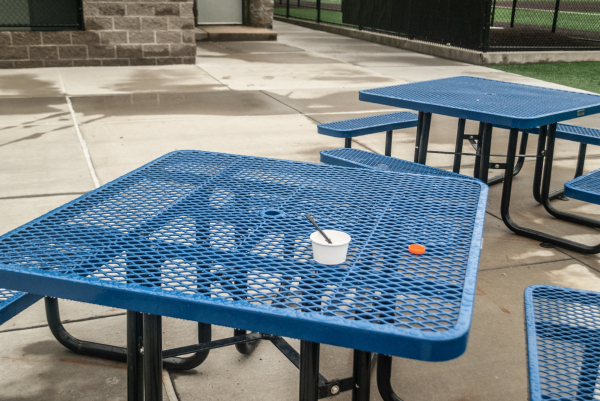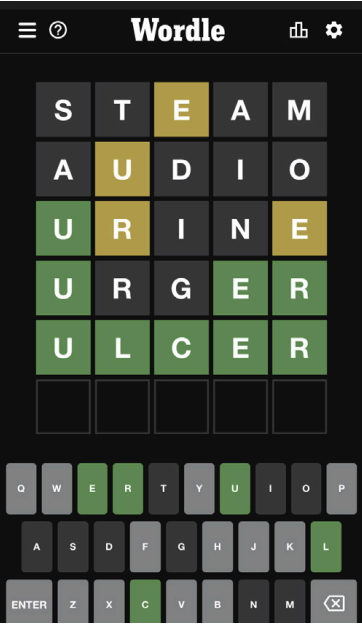All About Wordle
The new app that’s got everyone talking…
You may have heard the phrases, “Did you do the Wordle?” and “How many tries did you take?” recently floating around the Poly campus. Wordle has sparked conversation and healthy challenges between strangers through the power of the internet and connected many students and faculty on campus. The internet sensation Wordle has amassed millions of users just months after its release from Josh Wardle, a software technician in Brooklyn who created the game as a gesture for his partner.
June Dorsch, Grade 11, said, “[Wordle] forms a routine for my morning. I get to have a little fun…I do it on the bus to school. It’s quick and easy. You don’t just binge it like Candy Crush until you’re done because playing it once a day makes it more manageable.” A tip Dorsch uses to preserve the excitement of a fresh game is by straying from a “useful” starter word. “I find that it’s not as interesting when people [start with] a specific word. I try to find a word that relates to what I’m doing at the moment.” Players all getting the same word may create a similarity to a stranger next to them. Acquaintances who don’t typically interact are now talking, Rachel Dilieto, Grade 11, said. “Wordle has completely revolutionized and shaped the modern version of small talk. I’d rather hear about how many tries it took for you to do the Wordle than how you feel about the weather.”
The game exercises friendly competition, and math teacher Emily Liao, an everyday Wordler, appreciates the pleasant conversations. “I have a close group of 15 people but we can’t meet each other that frequently right now…it endures joy and competition between us,” she said. Liao enjoys the word “stare” as a starting word. Math teacher Stephen Bates, another daily Wordler, plays “for the challenge,” he said. “It’s fun, like a peaceful competition.” He enjoys using “crash” as a starting word.
Gemma Pauls, Grade 10, shares her strategic starting word, “Adieu.” “It uses the most vowels,” she said. We may begin to stray from the “How’s the weather?” Cliché conversation starters; Perhaps we will hear more of: “Hey, have you done the Wordle?”
In the game, the user must guess the correct five-letter word in a maximum of six attempts. After plugging in a word as a guess, the player gets feedback: A green brick means that the letter is correct and in the exact location, a yellow brick signifies that the letter appears in the word but in a different place, and a gray or black brick indicates that the letter does not appear anywhere in the word.
Psychologist Lee Chambers analyzed the addictiveness of Wordle in an interview with Insider and claimed that Wordle “stimulates both the language- and logic-processing areas of our brains.” The addictiveness to the game grows the user base rapidly. “Since launching Wordle, I’ve been in awe of the response from everyone that has played. The game has gotten bigger than I ever imagined.” Josh Wordle comments on the success of the game. In October, Wordle had 90 users. That number grew to 300,000 in November, and now millions are playing, according to the Times announcement. The game has traveled from Wordle’s idea of a romantic game for his and his partner in Brooklyn to the daily lives of millions to a seven-figure buy-out from the New York Times.

Maerose Daniels is a current Editor-in-Chief of The Polygon. After previously being News Editor and then Managing Editor, she continues to strive for transparency...



























